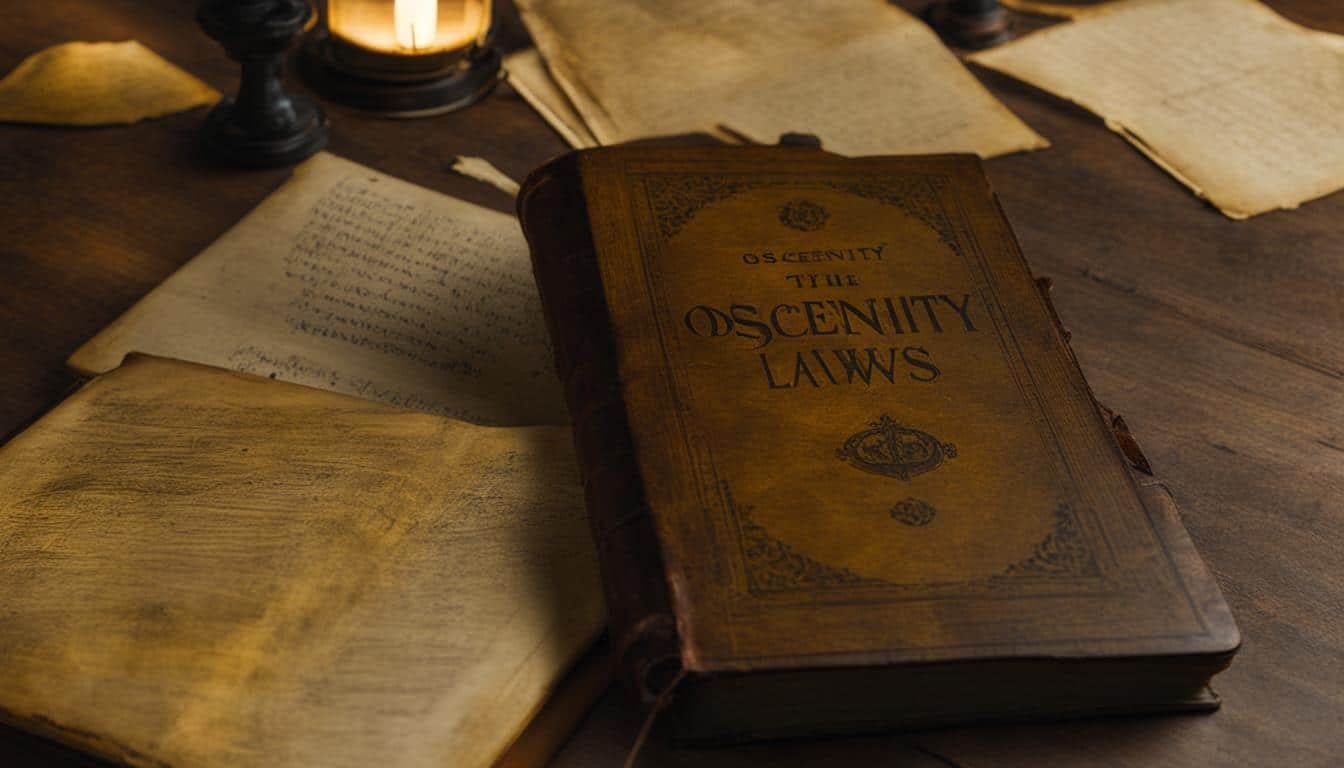Welcome to our guide on how censorship laws impact media freedom in the United States. While the First Amendment protects American people from government censorship, it is important to understand the limitations and complexities surrounding this fundamental right.
Censorship can occur when individuals or groups attempt to restrict the expression of others. Government censorship directly implicates First Amendment freedoms, while private forms of censorship do not. Throughout history, banned books and challenged publications have been at the center of censorship debates.
The First Amendment guarantees essential elements of democracy, such as freedom of speech and press. However, the Supreme Court has set guidelines for defining protected and unprotected speech, including certain forms of speech that may be subject to censorship, such as libel and slander against public officials.
Censorship can also manifest in school settings, where school officials have broad power to restrict certain forms of speech. Additionally, determining what is considered obscene has been an ongoing matter dealt with by the Court through various tests.
In certain genres, such as rap and hard-core rock-n-roll music, there has been more censorship compared to others. Moreover, acts of sedition, attempting to overthrow the government, have often resulted in restrictions on speech throughout history. Press freedoms can also be particularly vulnerable during times of war.
Key Takeaways:
- Censorship can occur through government or private means, with government censorship having direct implications on First Amendment freedoms.
- Banned books and challenged publications have been central to censorship throughout history.
- The First Amendment guarantees freedom of speech and press, essential elements of democracy.
- The Supreme Court sets guidelines for defining protected and unprotected speech.
- Censorship can occur in school settings, with broad power granted to school officials.
Attacks on Press Freedom in Democracies
In recent years, media freedom in democratic countries has faced growing threats. The rise of right-wing populism has played a significant role in undermining basic freedoms and silencing critical voices in many influential democracies. Governments have employed various tactics such as ownership changes, regulatory pressure, and denunciations of journalists to throttle media independence.
Europe, Eurasia, and the Middle East have witnessed the most significant deterioration in media freedom. The trend of cultivating progovernment media has even spread to neighboring states. Economic manipulation of the media, where friendly outlets are favored while critical ones are restricted, has become more prevalent in Europe.
This assault on press freedom is not limited to specific regions. Countries like Israel, India, and the United States have also experienced attacks on media independence. Israeli Prime Minister Benjamin Netanyahu has criticized investigative reporters and currently faces corruption charges. In India, the ruling party has supported campaigns against “antinational” speech and targeted critical journalists. In the United States, President Donald Trump’s vilification of the press has worsened the erosion of public confidence in media institutions.
These attacks on press freedom in democracies reflect a broader decline in democratic values and institutions. It is crucial to recognize and address the threats posed by right-wing populism and the erosion of media freedom to ensure the preservation of democratic ideals and the free exchange of ideas.
Table: Examples of Attacks on Press Freedom in Democracies
| Country | Threats to Press Freedom |
|---|---|
| Europe, Eurasia, and the Middle East | Deterioration of media freedom due to progovernment media, regulatory pressure, and ownership changes |
| Israel | Criticism of investigative journalists by Prime Minister Benjamin Netanyahu, who faces corruption charges |
| India | Support for campaigns against “antinational” speech, targeting of critical journalists |
| United States | President Donald Trump’s vilification of the press contributing to the erosion of public confidence |
Conclusion
Press freedom is vital for the functioning of a democratic society. It serves as a barometer of the health of our institutions and ensures the free exchange of ideas. However, the threats to press freedom pose a significant challenge to our democracy.
Attacks on press freedom not only undermine media independence but also contribute to the erosion of basic democratic principles. When journalists are silenced or harassed, the public’s access to honest and fact-based information is compromised, making it harder for individuals to make informed judgments.
In today’s digital age, where information is readily available, the role of libraries in defending intellectual freedom and challenging censorship becomes more important than ever. They provide spaces where diverse perspectives can be explored and where the public can engage in critical thinking.
While private entities, like social media platforms, may regulate speech, the government is prohibited from doing so. This separation ensures that our democracy remains intact, and the freedom of speech is protected.
As we witness the decline of press freedom globally, it is crucial for the public to continue advocating for the protection of basic democratic rights. By defending press freedom, we safeguard the pillars of our democracy and ensure a society where ideas can be freely expressed and debated.
Source Links
- https://freedomhouse.org/report/freedom-and-media/2019/media-freedom-downward-spiral
- https://firstamendment.mtsu.edu/article/censorship/
- https://www.ala.org/advocacy/intfreedom/censorship







